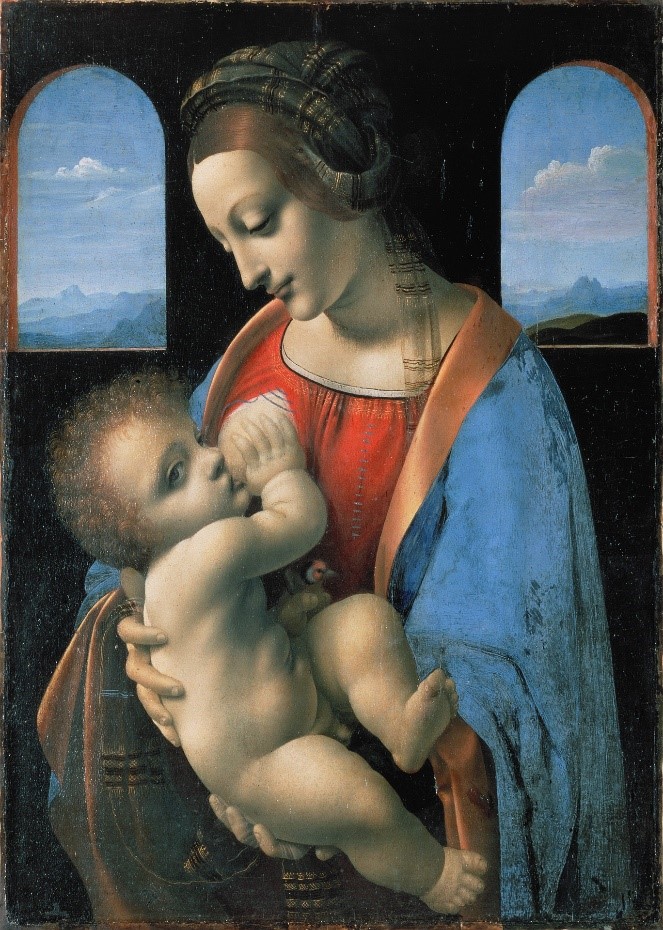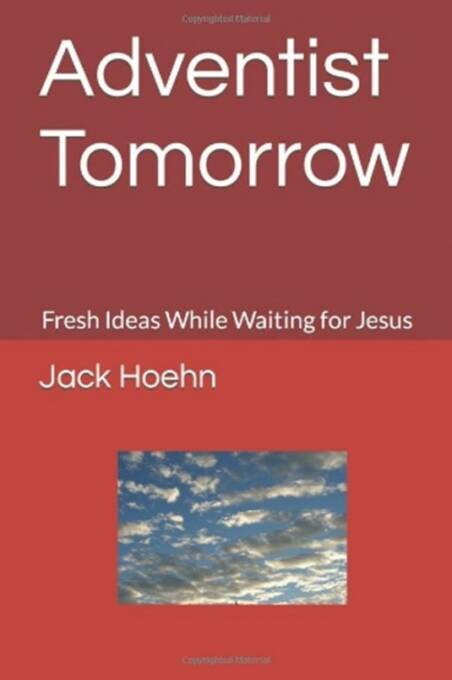The Body Temple: Evil Defined by Good
“The universe [is] shot through with appalling threads—violence, slaughter, sickness, and pain.” [1]
by Jack Hoehn | 18 September |
It is incontrovertible that we live in a great controversy. Life and health are under constant attack. How can we keep body temples safe for worship? It seems that some have learned how to avoid taxes, but no one you know has learned how to escape death and most do not escape illness. Like a baby born in Ukraine on February 24, 2022, she does not understand why there are rockets and bombs and guns, but she has learned what bomb shelters look like.
We know evil because we know good.
I understand that the existence of evil can lead to dismissal of the goodness of God. But for this article I would like to remind you, how do we know evil is evil? Because we had a mother who suckled us warmly and softly on her breasts in that bomb shelter, and a father who bravely left us in the shelter for a freezing muddy trench to push bombers and rocket launchers back on the cruel Czar, the King of the North. We know what is evil, only because we also know what is good.

We are not now trying to solve the why. We are reminding ourselves of El Shaddai—which means the Mighty Nourishing Breasted God, shad being a woman’s nipple and breast[2])— the love we all experience in the bomb shelters of life, the brave soldiers who constantly fight for health.
Hugh Ross explains it this way.
“Most people define the perfect home for humanity as a place where ‘bad stuff’ doesn’t happen. As diverse as the world’s cultures may be, people everywhere mostly agree on what to get rid of to make the world a better place—injustice, oppression, deprivation, disease, and physical, mental, and emotional injuries/impairments. The list could go on, but even this brief summary supplies a context for the ‘perfect paradise’ people long for. A place free of injury, disease, suffering, and disability. In other words, the perfect place like the Garden of Eden, only on a global scale.”[3]
Even this Eden-free post-deluge world is full of
“an extravagance of beauty and elegance…. [People can] enjoy magnificent environments, eat delightful foods, spend quality time with others, access technology, and experience pleasure of all kinds—spiritual, intellectual, emotional, and physical. We easily could get by with less. Unfortunately, most people do, and many starve, but not because of undersupply.”[4]
Inequality is not a creation problem; it is ours.
Growth is good
Let’s start by reminding that growth is good. Everyone started out as half a mother cell that came together with another half a cell (sperm) in your mother’s uterus to make one single cell. Growth is good. Growth is necessary for anything called life. Every baby wants to grow, every child wants to get big, every teenager wants to grow up. Every college student wants to stop growing at the perfect size!
But growth in size, in number, in complexity, is an intelligently designed, infinitely complex, carefully engineered process. And even if you are 25 and finally stopped growing (your brain grows till 25), fresh is good, new is good. Old skin cells need to be refreshed. Old split ends need to be replaced. Old tears need to be washed away by new fresh tears. Your bone lasts for 10 years—but would you want to wait 10 years for a broken ankle to heal?
No, even for slowly replaced cells, in the face of fracture or injury—lacerations or surgery—accelerated growth is necessary and good. It is healing. Cells need to have ways of waking up, of starting to make new ones, fresh ones, strong ones much more quickly than usual. Growth is good. Fresh is good. Healing is good. Accelerated growth when ordinate, measured, controlled, as designed is good.
Growth is terrible
Otherwise, inordinate, measureless, uncontrolled, disobedient growth is called cancer. Cancer is growth but abnormal growth. Growth apparently oblivious to the regulatory influences of the laws, the life code, the instructions from the guardians and monitors and conductors of life. The systems were designed to monitor the growth and then say, “Thanks, you can stop now.” Cancer is when growth says, no!
Tissues growing fast and turning over quickly like in a fetus, in the lining of the stomach, in a healing wound or repairing a fracture, all respond to the command of the system at some point to stop growing. They obey the wonderful thoughtful rules. Cancer refuses to play by the rules.
Cancer cells say, “I will grow wherever I want, whenever I want for me.” Cancer cells “divide without limits. They grow without direction or influence from outside agents like hormones. They engage in angiogenesis, which is to say they trick the body into giving them a blood supply. They disregard any signals to stop growing. They fail to succumb to apoptosis (…programmed cell death). They metastasize, or spread to other parts of the body.”[5]
Knowledge tree
Cancer is the hijacking of something good and wise.
Cancer is the hijacking of something good and wise and intelligently designed by selfishness. By the sin of “me at any cost.” And as we all know by sad experience, “The wages of sin is death.” This Bible quote is a fact of science about what we call cancer.
Every time a human cell divides, it has to perfectly reproduce three billion nucleic acids. And from birth till death this happens countless times everywhere in our body of countless cells. The surprise is not that very rarely errors occur in the environment full of radiation–from earth, from sun, from the galaxy and beyond, and from the uses and abuses of life. The surprise is that it so rarely happens in the carefully designed life systems. And when it does happen, there are designed mechanisms pre-built into place to correct or reject the rare errors. The “just in case” systems are examples of created beneficence and intelligence in design.
“Repair enzymes recognize structural imperfections between improperly paired nucleotides, cutting out the wrong ones and putting the right ones in their place.” Then, if this mechanism does fail, there are designed soldiers in place to mount a defense.
Your immune system has thymus-based T-cells that “carry a specialized molecule on their surface, called a T-cell receptor, that helps them seek out and kill off diseased cells.” Most tumor cells are no match for deadly T-cells, which is why all kinds of cancers are rare in otherwise healthy young people and children; the majority of cancers occur in the aged. “Between birth and the age of forty, men have just 1:71 chances of getting any cancer…but over sixty the odds drop to 1:3.”[6]
This is why there is not much of a cancer history in human history. In previous ages most humans died young, before they were old enough to get cancer. Now that infectious deaths are more preventable and treatable is when cancers have become our most feared enemy.
But none of this terrible bad negates the fact that the good is there, and there is healing constantly at work in all life. This is why prevention is so important. There is no question that a large majority of our diseases are caused by human behaviors—smoking (anything, including marijuana), drinking alcohol (not a health drink in any form), and being overweight. The tree of love and knowledge has rules.
Yet we must not forget that we know evil is evil, only because we do know the good.
[1] Howard Bloom, The Lucifer Principle—a Scientific Expedition into the Forces of History (1995), page 1.
[2] Leslie Hardinge, His Name Is Wonderful (1993), page 55.
[3] Hugh Ross, Why the Universe Is the Way It Is (2008), page 148.
[4] Ross, page 149.
[5] Bill Bryson, The Body: A Guide for Occupants (2021), page 336.
[6] Bryson, page 339.
This is #12 in a series on worship guided by science. (#1 is here).
Jack is also known as Dr. John Byron Hoehn, MD, CCFP (Canada), DTM&H (London).
 Jack’s book Adventist Tomorrow—Fresh Ideas While Waiting for Jesus in its second edition continues to be the most popular book Adventist Today has published.
Jack’s book Adventist Tomorrow—Fresh Ideas While Waiting for Jesus in its second edition continues to be the most popular book Adventist Today has published.
Its chapters include: Shining in the Darkness, Pillars of Adventism, A Safer Sanctuary, Pacifism–Have We Surrendered?, Against Abuse–For All Love, Kosher–Does Meat Matter?, and many more.
 Deanne’s delightful book called Loving You—I Went to Africa is about their 13 years as medical missionaries.
Deanne’s delightful book called Loving You—I Went to Africa is about their 13 years as medical missionaries.
Readers say: “What a beautiful story. Completely drew me in and I read every word. The pacing, the way the events unfold feels like hearing a friend talking about an exotic life of service.…”
“Great storytelling, great read, hard to put down.”
These books are available at SHOP in the menu at the top of the page. All sales go to support Adventist Today.
To comment, click/tap here.




